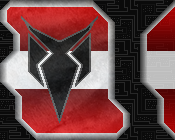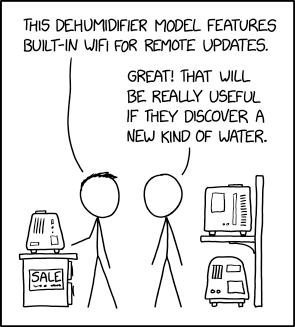






 Posted by Slashdot Staff from Slashdot
Posted by Slashdot Staff from Slashdot
From the next-gen-vpn department: TorrentFreak spotlights VP.net, a brand-new service from Private Internet Access founder Andrew Lee (the guy who gifted Linux Journal to Slashdot) that eliminates the classic "just trust your VPN" problem by locking identity-mapping and traffic-handling inside Intel SGX enclaves.
The company promises 'cryptographically verifiable privacy' by using special hardware 'safes' (Intel SGX), so even the provider can't track what its users are up to.
The design goal is that no one, not even the VPN company, can link "User X" to "Website Y."
Lee frames it as enabling agency over one's privacy:
"Our zero trust solution does not require you to trust us - and that's how it should be. Your privacy should be up to your choice - not up to some random VPN provider in some random foreign country."
The team behind VP.net includes CEO Matt Kim as well as arguably the first Bitcoin veterans Roger Ver and Mark Karpeles.
Ask Slashdot: Now that there's a VPN where you don't have to "just trust the provider" - arguably the first real zero-trust VPN - are trust based VPNs obsolete?







 Posted by from MMO Champion
Posted by from MMO Champion
Get Started with Pet Battles in Mists of Pandaria Classic
Originally Posted by Blizzard
(
Blue Tracker /
Official Forums)
In Mists of Pandaria Classic, players can engage in Pet Battles—strategic 3v3 turn-based encounters that feature hundreds of collectible battle pets from across Azeroth. This beginner-friendly guide introduces the fundamentals of Pet Battles, from taming wild companions to mastering type matchups and ability combos.
What are Pet Battles?
Pet Battles allow players to turn their companion pets into battle-hardened allies. Unlock the feature through Battle Pet Training and take your team of three pets into tactical, turn-based encounters against wild creatures, quest trainers, and other players.
Each pet has its own family type, abilities, and progression path.
How to Get Started

Audrey Burnhep in Stormwind

Varzok in Orgrimmar
Train the skill: Visit any major city and speak with a Battle Pet Trainer to learn Battle Pet Training. This unlocks Pet Battles and the ability to track nearby wild pets on your minimap.
Tame your first pet: Choose from your current companions or tame a level 1 wild pet in a starting zone like Elwynn Forest or Durotar.
< This article continues on their website >







 Posted by Black Convoy from TFW2005
Posted by Black Convoy from TFW2005

Thanks to friend site
Cybertron.ca we can report that the Transformers Studio Series Wave 29 Voyager is out in Canada.
Constructicon Mixmaster and
War For Cybertron Thundercracker were found at Walmart stores in Ontario and Quebec. Happy hunting!
The post
Transformers Studio Series Wave 29 Voyager Out In Canada appeared first on
Transformer World 2005 - TFW2005.COM.







 Posted by EditorDavid from Slashdot
Posted by EditorDavid from Slashdot
From the catching-some-rays department: "Earth's ozone layer blocks the Sun's shortest wave radiation, called UV-C, which is so damaging to cells in high doses that it's a go-to sterilizer in hospitals," writes Slashdot reader sciencehabit. "UV-C is such a killer, in fact, that scientists have questioned whether life can survive on worlds that lack an ozone layer, such as Mars or distant exoplanets.
"But research published this month in Astrobiology suggests one hardy lichen, a hybrid organism made of algae and fungi, may have cracked the UV-C code with a built-in sunscreen, despite never experiencing these rays in its long evolutionary history."
Science magazine explains:
When scientists brought a sample of the species, the common desert dweller Clavascidium lacinulatum, back to the lab, graduate student Tejinder Singh put the lichen through the wringer. First, Singh dehydrated the lichen, to make sure it couldn't grow back in real time and mask any UV damage. Then he placed the lichen a few centimeters under a UV lamp and blasted it with radiation. The lichen seemed just fine.
So Singh purchased the most powerful UV-C lamp he could find online, capable of sending out 20 times more radiation than the amount expected on Mars. When he tested the lamp on the most radiation-resistant life form on Earth, the bacterium Deinococcus radiodurans, it died in less than a minute. After 3 months—likely the highest amount of UV-C radiation ever tested on an organism—Singh pulled the sample so he could finish his master's thesis in time. About half of the lichen's algal cells had survived. Then, when the team ground up and cultured part of the surviving lichen, about half of its algal cells sprouted new, green colonies after 2 weeks, showing it maintained the ability to reproduce.
The species may provide a blueprint for surviving on Mars or exoplanets, which don't have an ozone layer to protect them.







 Posted by EditorDavid from Slashdot
Posted by EditorDavid from Slashdot
From the O-Canada department: "Canada and the United States have resumed trade negotiations," reports Newsweek, "after Canadian Prime Minister Mark Carney agreed to rescind the country's digital services tax on U.S. technology companies."
The development follows President Donald Trump's announcement on Friday that he was suspending all trade talks with Canada "effective immediately" over the tax policy... Canada's quick reversal signals the high stakes involved in maintaining trade relationships with the United States, particularly given the countries' deeply integrated economies.
Carney's office confirmed on Sunday that both leaders have agreed to restart negotiations after Canada committed to abandoning the 3 percent levy targeting major U.S. tech giants including Amazon, Google, Meta, Uber, and Airbnb. The tax was scheduled to take effect Monday and would have applied retroactively, creating an estimated $2 billion bill for American companies. The conflict escalated rapidly after Canada's Finance Department confirmed Friday that companies would still be required to make their first digital tax payments Monday, despite ongoing negotiations. The tax targeted revenue generated from Canadian users rather than corporate profits, making it particularly burdensome for technology companies operating internationally...
Canada's decision to rescind the tax came "in anticipation" of reaching a broader trade agreement, according to government officials. With negotiations resuming, both countries will likely focus on addressing broader trade issues beyond the digital services tax.







 Posted by EditorDavid from Slashdot
Posted by EditorDavid from Slashdot
From the finishing-your-homework department: Mitch Kapor dropped out of MIT's business school in 1979 — and had soon cofounded the pioneering spreadsheet company Lotus. He also cofounded the EFF, was the founding chair of the Mozilla Foundation, and is now a billionaire (and an VC investor at Kapor Capital).
45 years later, when the 74-year-old was invited to give a guest lecture at MIT's business school last year by an old friend (professor Bill Aulet), he'd teased the billionaire that "there's only one problem, Mitch, I see here you haven't graduated from MIT."
The Boston Globe tells the story...
After graduating from Yale in 1971 and bouncing around for almost a decade as "a lost and wandering soul," working as a disc jockey, a Transcendental Meditation teacher, and a mental health counselor, Kapor said he became entranced by the possibilities of the new Apple II personal computer. He started writing programs to solve statistics problems and analyze data, which caught the attention of Boston-area software entrepreneurs Dan Bricklin and Bob Frankston, who co-created VisiCalc, one of the first spreadsheet programs. They introduced Kapor to their California-based software publisher, Personal Software.
Midway through Kapor's 12-month master's program, the publisher offered him the then-princely sum of about $20,000 if he'd adapt his stats programs to work with VisiCalc. To finish the project, he took a leave from MIT, but then he decided to leave for good to take a full-time job at Personal. Comparing his decision to those of other famed tech founder dropouts, like Bill Gates, Kapor said he felt the startup world was calling to him. "It was just so irresistible," he said. "It felt like I could not let another moment go by without taking advantage of this opportunity or the window would close...."
< This article continues on their website >







 Posted by EditorDavid from Slashdot
Posted by EditorDavid from Slashdot
From the XX-marks-the-spot department: "Researchers are embarking on an ambitious project to construct human genetic material from scratch," reports the Guardian, "to learn more about how DNA works and pave the way for the next generation of medical therapies."
Scientists on the Synthetic Human Genome (SynHG) project will spend the next five years developing the tools and knowhow to build long sections of human genetic code in the lab. These will be inserted into living cells to understand how the code operates.
Armed with the insights, scientists hope to devise radical new therapies for the treatment of diseases. Among the possibilities are living cells that are resistant to immune attack or particular viruses, which could be transplanted into patients with autoimmune diseases or with liver damage from chronic viral infections. "The information gained from synthesising human genomes may be directly useful in generating treatments for almost any disease," said Prof Jason Chin, who is leading the project at the MRC's Laboratory of Molecular Biology (LMB) in Cambridge...
For the SynHG project, researchers will start by making sections of a human chromosome and testing them in human skin cells. The project involves teams from the universities of Cambridge, Kent, Manchester, Oxford and Imperial College London... Embedded in the project is a parallel research effort into the social and ethical issues that arise from making genomes in the laboratory, led by Prof Joy Zhang at the University of Kent. "We're a little way off having anything tangible that can be used as a therapy, but this is the time to start the discussion on what we want to see and what we don't want to see," said Dr Julian Sale, a group leader at the LMB.







 It's important for devices to have internet connectivity so the manufacturer can patch remote exploits.
It's important for devices to have internet connectivity so the manufacturer can patch remote exploits. 

